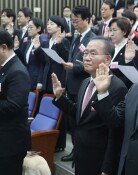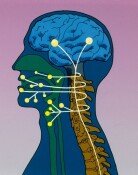Government’s reversed decisions create confusion
Government’s reversed decisions create confusion
Posted January. 31, 2020 08:12,
Updated January. 31, 2020 08:12
A chartered plane scheduled to bring some 700 Korean residents in Wuhan was cancelled suddenly early Thursday. The government said it was because the Chinese government did not approve sending two planes a day and it is still hesitating. South Korean Minister of Health and Welfare Park Neung-hoo tried to explain, but it still has not provided the exact reason of cancellation. Later on the day, the government said it would send a plane in evening.
It is hard to understand why decisions have not been made on this matter because the U.S. and Japan took their citizens home from Tuesday and South Korean Foreign Minister Kang Kyung-wha talked on this matter with Chinese Foreign Minister Wang Yi. The South Korean consulate general in Wuhan confused Korean residents by making an announcement from Monday, which is before the government’s official announcement let alone discussions between Seoul and Beijing, and reversing it multiple times.
The South Korean government is creating even more confusions. Due to differences on whether to include Korean residents with symptoms in the transport list until Wednesday morning, the Foreign Affairs Ministry and the Health and Welfare Ministry reached an agreement to bring only those with no symptoms on Wednesday afternoon. They originally announced Tuesday to accommodate Korean residents in Cheonan, South Chungcheong Province until they changed it to Asan and Jincheon and provoked resistance among local residents. Confusions and criticisms grew because information was not publicized and the government failed to persuade local communities. The South Korean presidential office Cheong Wa Dae said the decision was made by the prime minister’s office, which said it was a decision made by the Ministry of Public Administration and Security. The vice minister of health and welfare was dragged by the hair on his visit to Jincheon on Wednesday, and residents in Asan threw eggs to the minister of the interior and safety and the governor of South Chungcheong Province on Thursday.
The harder the situation is, the more important a systematic and quick response becomes. Many entities including the Centers for Disease Control and Prevention Korea, the Central Disaster and Safety Countermeasures Headquarters, the Ministry of Health and Welfare, the prime minister’s office and Cheong Wa Dae are struggling with the issue, but it may be confusing for Korean citizens because it is hard to know which one is the control tower. Without a leading entity, it is only creating dissonance. Politicians who are conscious of the upcoming April general elections are instigating conflicts and NIMBYism. The Centers for Disease Control and Prevention Korea needs to make decisions as it has expertise on infectious diseases and the National Security Office and the prime minister’s office should make decisions on political matters such as chartered plane transport and provide administrative support such as designating a facility for isolation. There is a high possibility of the China coronavirus outbreak being prolonged. Having enough resources to overcome this, South Korea should respond effectively and thoroughly with a central body. Wuhan pneumonia is testing South Korea’s ability to respond to crises.







